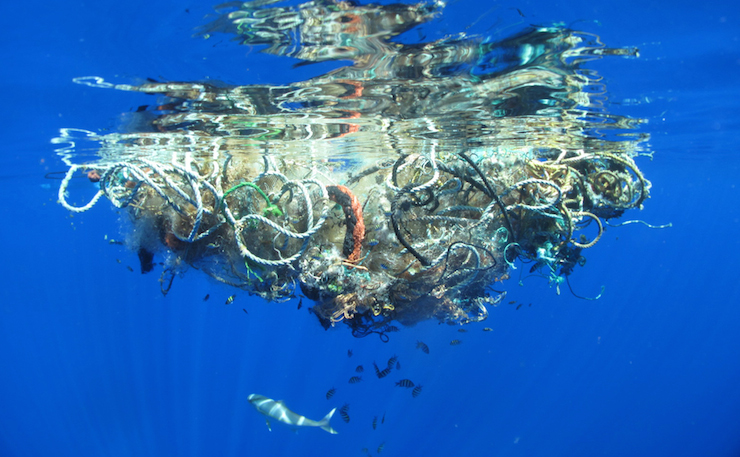DON’T MISS ANYTHING! ONE CLICK TO GET NEW MATILDA DELIVERED DIRECT TO YOUR INBOX, FREE!
You thought ditching plastic was making your footprint greener? Unfortunately, it’s not always that cut and dried, writes Gina Zheng.
Earlier this month saw the celebration of World Environment Day, a United Nations endorsed day to encourage environmental awareness. The environment and climate change have emerged as an increasingly pertinent and hot topic these days, so perhaps what we need to talk about is not just about the ‘whys’ and ‘whats’ of the environment, conservation and sustainability, but instead the ‘hows’.
A lot of greenies and passionate everyday environmentalists have probably seen the ABC’s War on Waste. And even if you haven’t, it has become a pretty well-accepted fact that ‘plastic equals bad’ for the environment, and that reducing our individual consumption of plastics can reduce our carbon footprint and allow us to play our green civil roles in society.
But sometimes, that isn’t always the case.
Food-related plastics actually aren’t so bad
Food-related plastics have stirred up some of the biggest controversies recently, with big-chain supermarkets implementing and reversing nation-wide plastic bag policies.
Not all food-related plastics are nasty.
In fact, studies show that packaging of foods account for about 5% of the energy exerted in the farm-to-shelf food production life-cycle. Importantly and more practically, for some vegetables, plastic packaging maintains the shelf-life and freshness of produce which goes to prevent food wastage (a whole other can of sustainable worms in itself).
A more nuanced approach recognises that not all plastics are evil and durable plastics that are aggregated in use can actually be quite emissions friendly. One woman even takes it further by making the calculation that the carbons emitted from her car and transport to her local farmers market produced more emissions then if she shopped at big-chain supermarkets that sell their produce pre-packaged in plastic.
So, perhaps instead of focussing on what’s being wrapped around your food, attention should be directed towards what’s actually in the packaging to maximise impact in reducing carbon footprint.
Data storage emissions versus plastic production emissions
There is no doubt that technology, e-commerce and digitisation has re-imagined the way we live our lives – from the way organisations do business, to the way that we engage in culture, media and material goods, technology has changed the value chain.
I’d like to think that because I use my phone – just one piece of plastic – for so many aspects of my life (communications, music, TV and even all those pesky loyalty and membership cards!) I’m significantly reducing my consumption and use of plastic, and therefore my emissions. But this is only because it is so easy to forget that all this tech, data and digital technology uses energy. And, a lot of it too.
The music and film industries are a prime example of this. While there exist copious studies to demonstrate that music downloads produced less carbon emission than the production of plastic in-store CDs, these studies were before the days of data-intensive streaming sites. It’s easy to ignore, because the emissions produced from streaming music is invisible and intangible. But in reality the data-processing and data-storage required behind streaming is immense and powerful.
And let’s not even get started on the data-processing and electricity power behind video streaming platforms such as Netflix, Stan and the likes. While major tech giants such as Google and Apple are paving the way with renewables there is still a long way to go with ensuring our 21st Century media consumption through streaming is sustainable.
Of course this isn’t to say that endeavours to minimise plastic waste are useless efforts better placed elsewhere. Plastic definitely has a role to play in creating environmental challenges. Conservationists and marine researchers have well demonstrated the deteriorating effects of plastic pollution on our oceans, and the life-threatening harm plastic can pose to marine livelihoods.
However, it does go to demonstrate that living a green lifestyle isn’t always as easy as it seems and that we need to move beyond simply raising awareness about the environment and towards making more informed choices about sustainability.
This isn’t the first time I have written about the limiting effects of plastic-driven conservation efforts about sustainable lifestyles and being green. And it’s a frustrating notion to consider – that well-intentioned and best-placed efforts may not always be the most efficient and green of efforts. But our environment and our society are complex systems, and no one-size fits all approach can be applied in every scenario and context.
More significantly, it is important to remember that every little bit counts, if not just for yourself, but to also influence your peers and those around you.
If you ever doubted the impact that one person can have on a large social issue, just think of how much trouble one simple mozzie can stir up in a room full of people.
Gina Zheng is an environmental advocate and researcher and has previously worked for World Wide Fund and as a researcher for the Environmental Defenders’ Office in Canberra, ACT and the Environmental Law Association for Fiji.
DON’T MISS ANYTHING! ONE CLICK TO GET NEW MATILDA DELIVERED DIRECT TO YOUR INBOX, FREE!
Donate To New Matilda
New Matilda is a small, independent media outlet. We survive through reader contributions, and never losing a lawsuit. If you got something from this article, giving something back helps us to continue speaking truth to power. Every little bit counts.




